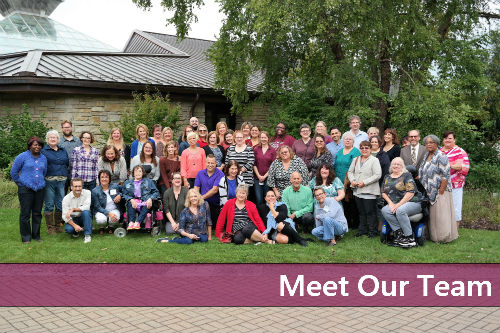Protection and Advocacy
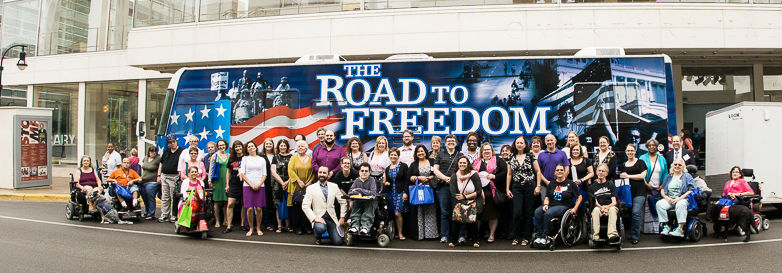
Disability Rights Wisconsin is the designated Protection and Advocacy (P&A) agency for Wisconsin and is part of a nation-wide network of P&A agencies. The Protection and Advocacy system is a combination of federally funded programs that serve people across the spectrum of disabilities to protect against abuse, neglect, or wrongdoing, and to enforce the rights of people with disabilities. We can provide many services such as advocacy, legal support, and rights protection. These programs have been expanded over the years to make sure people with disabilities have full access to:
- Inclusive education
- Financial entitlements
- Healthcare
- Accessible housing
- Transportation
- Employment.
See our Areas of Focus for more information about the ways the Protection and Advocacy programs support people with disabilities.
How We Help
Our Protection and Advocacy services are free. The services we are able to provide are determined by a variety of factors including the person's
- ability to self-advocate
- if the issue or concern fits within our Areas of Focus, and
- the staff resources available.
To determine the type of service we can offer, all requests for services must first go through our Intake process and meet our Case Acceptance Criteria. The following are the services our intake specialists, advocates, and attorneys can offer through the Protection and Advocacy programs.
 Information and Referral
Information and Referral
Our Intake Specialist and Advocates have access to a wide range of information and resources they can share. During the intake process, they will talk with the person who is requesting services, ask about that person's concerns, and try to better understand the person's needs. If DRW is not able to help the person requesting services, our staff will do their best to provide information that can help them better understand and address their particular issue or concern on their own. Our staff may also provide a referral to another community resource or agency that offers the kind of service or support the person needs.
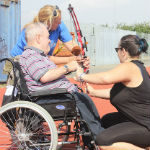 Technical Assistance
Technical Assistance
DRW can offer short-term help such as coaching or technical help when someone needs support to advocate. Our advocates and attorneys will share their expertise and offer advice, information, resources, and the tools needed to help people self-advocate whenever possible so they can achieve positive results for themselves.
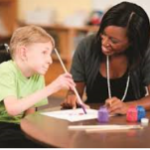 Individual Case Representation
Individual Case Representation
When people need more substantial support, our advocates can provide advocacy or legal help. They can also represent the person to third parties. This may be done through meetings, correspondence, telephone calls, or through other means on behalf of the person. Our advocates may also conduct investigations when there are allegations of abuse or neglect. DRW is limited in the number of individual cases we can represent. See Case Acceptance Criteria for more details.
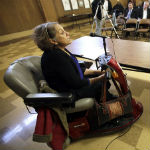 Appeal or Litigation in Court
Appeal or Litigation in Court
Our attorneys can also provide legal representation to make an appeal, resolve a dispute, or protect your rights before administrative appeal agencies or within the court system. DRW has limited capacity for litigation. See Case Acceptance Criteria for more details.
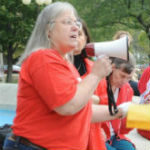
Systemic Advocacy
Sometimes an individual's issue may represent a larger systemic issue for people with disabilities. In these situations, DRW may decide to take a more systemic approach in its advocacy to have a greater impact for people with disabilities. Depending on the issue, this may include activities such as conducting investigations or monitoring of facilities and institutions. It could involve working in partnership with other organizations around the state to address program specific issues, promoting legislative policy changes, or improving practices within county or state systems.
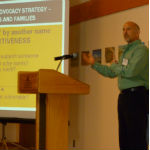 Training
Training
DRW provides informational training and other learning opportunities for consumers, family members, attorneys and others who support people in the disability community. Disability Rights trainers offer effective strategies to strengthen individual advocacy skills, improve the system’s response to issues of access, broaden the understanding of disability rights and more.
Eligibility
To be eligible for Protection and Advocacy services from Disability Rights Wisconsin, your issue or concern should fall within our Areas of Focus and you must be:
- A person with a disability and have an issue or concern related to disability
- A family member or guardian of a person with a disability who is seeking to protect the rights of the person with a disability.
All requests for services must go through our Intake process to determine how or if we can help you. Additional criteria may apply depending on the of the person's situation, review of our Case Acceptance Criteria, and availability of staff resources.

